- Home
- Hammond Innes
Solomons Seal Page 25
Solomons Seal Read online
Page 25
‘And what about the letter that so upset Colonel Holland? Did Tim take that, too, or is it still there?’
‘We’ll see.’
‘Is that why you suggested we put into the cove here?’
‘There was a storm coming up.’
‘But you wanted to go up to the house and have a look at that safe again.’
He didn’t answer. We reached a little wooden summer house half hidden under a tangle of vines. Our black shadow pointed to it. ‘Mi bring Coca-Cola, coffee, tea, anything yu want?’
Mac shook his head. We were on grass now, recently mown, the house looming over us, its veranda bearing the rot scars of damp and neglect. Beside the entrance steps was a green-painted drum overflowing with blackish water scummed with drowned insects. An unswept pile of them lay under the naked light bulb by the front door. The place looked like bachelors’ quarters run by servants, and when we were inside, there was no doubt about it, everything worn, dusty and uncared for, windows open to the rain, broken panes and curtains only half pulled back. No woman had been mistress of the house for a long time. ‘Doesn’t anybody live here now?’ I asked.
Mac shook his head.
‘What about Hans?’
‘His home is at Queen Carola. He’s lived up there ever since he was a laddie.’
We had moved from the entrance hall into a big central room that reached up to the roof. God knows what design the house was based on, vague memories of baronial halls perhaps. There was a grand staircase opposite the door, dividing at a landing and then climbing to a gallery that ran round the four walls with doors leading off, presumably to the bedrooms. The room in which we stood was panelled in some darkish wood that looked like teak, and the panels were hung with pictures. There were some watercolours of schooners and Pacific islands that reminded me of those in the Aldeburgh house, but most of the pictures were prints of well-known London buildings, the sort you can pick up in English country house sales. They looked quite incongruous in this setting. There was also a stuffed crocodile hanging above the landing halfway up the stairs. Two tattered tiger skins faced each other either side of the hearth, which was built of stone to pseudo-baronial proportions. ‘Who perpetrated this?’ I asked, my gaze lifting to the heavy carving of the gallery balustrade.
‘The Old Man.’
‘Yes, but what mad architect?’
‘No architect. He designed it himself. Saw to the building of it, too.’
‘After the war?’
‘Aye, there was a bit of a boom out here then, and ships were cheap. Old MFVs, a few schooners, hundred-baggers mainly – that’s bags of copra, you understand. Business was very good.’
‘And he put the safe under the stairs.’
‘Yes.’ He turned to the houseboy hovering in the entrance. ‘Yu go.’ He pushed him out and locked the door, also the door to the servants’ quarters. Then he crossed to the staircase, feeling under the carved base of the balusters on the right-hand side, while I stood staring up at the open-plan interior of the house Colonel Holland had built. It told me something about the man himself – his need of material recognition for what he was and what he had achieved out here in Bougainville-Buka, his nostalgia for home and his pride in the City, where he had learned the shipping business. His interest in wood and carving seemed to reflect a fundamental simplicity that must have been at odds with the paranoiac desire for grandeur. ‘Give me a hand, will you?’ Mac pointed to a hairline crack along each edge of the lower treads. ‘Made it himself.’ There was deep admiration in his voice. ‘He was always a perfectionist, and very good with his hands.’
He bent down then, motioning me to put my fingers under the lip of the bottom tread. There was a groove there, and together we lifted. I think one man could have done it, but the treads were heavy, the wood at least an inch thick and the hinges were stiff with dirt or corrosion. Four and a half treads folded back like the boot of a car to fit snugly against the treads above, revealing a 3-foot-high compartment thick with dust and cobwebs. The safe stood at the back against a wooden partition, the steel of it clean and glowing in the half dark. Mac wiped his fingers across the metal surface and sucked in his breath.
‘How long since you last opened it?’ I asked.
‘Me? I haven’t been to it since the Old Man was alive.’
‘Then who?’
He shrugged, bending down with one knee on the floor. ‘Hans, most likely.’ He reached to the combination dial, his fingers turning the knob.
‘I thought you said he lived up at Carola.’
‘So he does. But this place is handy for him when he’s got ships in the Buka Passage.’
‘So you think he knows about the safe?’
‘Either that or Jonathan has been here. I didn’t tell him the combination, but I did tell him about the safe and where it was hidden. I had to do that. It was a few months back. I knew I was drinking myself to death, and he’d a right to know.’ He looked up at me. ‘Something I don’t like, now I come to think about it. It was just after Mr Tim’s accident that Hans began using the place.’ He bent again to the safe, his eyes on the knurled dial as he turned it deliberately. ‘I had to tell someone,’ he murmured. There was a click, and he straightened up, giving the door a good strong pull. It came slowly open to show the inside of the safe crammed with stuff. There were dollars, tens and fives in packets, ships’ papers, two small gold bars, deeds covering the various properties, including Madehas, and right at the back, tucked in behind some ledgers, a large manilla envelope. He pulled it out with all the rest, and the name LEWIS stared up at me.
I reached down across his shoulders, picking it up from where it had fallen amongst the dirt and the cobwebs of the floorboards, and the first thing I pulled out of it was an envelope bearing the Solomons Seal stamp. It was addressed to Mrs Florrie Lewis of Dog Weary, Cooktown, Queensland, Australia, and it carried the Seal-on-Icefloe stamp in deep blue with SOLOMONS at the top and HOLLAND SHIPPING on the two sides, just as Pegley had drawn it for me, and PAID at the bottom. This was cancelled by a smudged postmark as though the Post Office clerk at Port Moresby not only had been in too much of a hurry to notice that the letter was incorrectly stamped but had failed to make a clear cancellation. The clerk at Cooktown, on the other hand, had obviously been on his toes, for the Australian Postage Due 2d. stamp, though stapped on at an angle in the bottom left-hand corner, had been clearly postmarked 28.JY.11.
No doubt about it, this was the cover Berners had bought at the Robson Lowe auction two years back. The catalogue description fitted exactly. So he had bought it for Hans Holland, and now it was here, in this safe, confirming that Hans knew not only about the safe, but also the combination, and that he was in the habit of using it. And that wasn’t all the envelope contained. It was a bulky packet, the main contents a tightly folded, badly stuck-together wadge of gummed paper, blotched by damp. I managed to separate one of the innermost sheets and open it out. I couldn’t help thinking of Tubby Sawyer then, how excited he would have been, for what I held in my hands was a complete sheet of sixty of the Solomons Seal ship labels. In the mass like that they looked really beautiful, all recess-printed and of a wonderful deep blue. Deep blue, Pegley had called it, but it looked to me in the dull light of that big room more a rich Royal Navy blue.
‘You collect stamps?’ Mac had stopped turning out the safe and was peering down at the sheet spread out on my knee. I nodded, wondering what they’d fetch at auction – wondering whether he’d let me take them away, or at least a sample sheet. And then, as I examined the whole wadge to see how many there were and the extent of the damage caused by damp, I came across the letter. It was an old letter, written with a steel-nibbed pen on quite superior pale blue notepaper that was faded at the edges, the ink gone brown with age. And the writing was the same as the writing on the cover addressed to Florrie Lewis in Cooktown. Dear Red, it began, This will come as a shock to you I am sure thinking me dead …
Mac seized hold of it. That’s th
e letter I was telling you about. The one that upset the Old Man so much the night we raided this place.’ His lips began forming the words, reading it slowly … ‘Who wrote this?’ He opened out the folded sheet. It was signed Merlyn Lewis, and when he turned back to the beginning again, I saw the date – Fifth June 1910.
If it had been addressed to Carlos Holland, I could have understood, but a letter to Red Holland back in 1910 … that was a full year before Lewis had posted the letter to his wife from Port Moresby and stamped it with the Solomons Seal ship label. That was what I couldn’t understand. It was Carlos, not Red Holland, who had had those sheets printed. And if Merlyn Lewis was the father of Minya Lewis from Cooktown, then he hadn’t been heard of since the year the Holland Trader had disappeared.
Mac finished reading the letter through, then handed it back to me. ‘Didn’t you mention the Dog Weary mine, some crazy story told by a half-breed abo named Lewis? Well, you read that letter.’ He was frowning, his eyes screwed up in concentration, the hand holding out the letter to me trembling. ‘Something there that don’t make sense.’
Fifth June 1910.
Dear Red,
This will come as a shock to you I am sure thinking me dead. But I got out thanks to some abos who took me walkabout across by Alice and down as far as the Nullabor. I was there 2 years working at Gt Boulder then at Ora Banda to earn enough to come after you now I know where you are.
I’m back east now, in Queensland, panning up round the headwaters of the Palmer, and for summer I have a shack over at the coast by Cooktown. I call it Dog Weary, just so I don’t forget you and what you did. You made a fortune, you bastard, taking all the water and leaving me to die. I nearly did too but not quite and now I’m coming for my share of the ships you got out of the Dog Weary money.
MERLYN LEWIS
‘He calls him Red, you see.’ Mac pointed his finger at the final lines. ‘My share of the ships, he says, and he’s writing it in 1910, remember, when it was Carlos running the schooners here. As I say, it doesn’t add up, does it?’
‘Unless, of course, it was the cousin who had staked Carlos. If Red Holland had financed the purchase of the first schooners, it would explain why Carlos left everything to him instead of his brother.’
Mac shook his head. ‘That wouldn’t have upset the Old Man the way the sight of that letter did. He was crouching there in that office, just as we are here, reading it by torchlight and the effect on him … shattering, that’s what it was. And he was quite different after that, very morose and bitter, and he couldn’t seem to settle, not until after we’d raided Queen Carola. After that he seemed suddenly himself again, as though burning Red Holland’s house over his head had exorcised a ghost.’
It was Mac’s use of the word ‘ghost’ that started me thinking again about the disappearance of the Holland Trader. But then he said, ‘Couldn’t be Jonathan that showed him how to open the safe.’ He was referring to Hans. Most of the things in the safe belonged to Hans Holland.
‘Colonel Holland might have given him the combination,’ I suggested.
‘No, definitely not.’
‘Tim Holland then?’
‘He wouldn’t have told him.’
‘Maybe Hans Holland caught him here with the safe open and those albums in his hand.’
But Mac wasn’t listening. He was reading through Lewis’s letter again, his hands trembling slightly and a shocked look on his face. When he finished, he folded it up slowly and sat quite still for a moment, squatting back on his heels and staring at nothing. Finally he passed the letter to me. ‘You’d better keep it. Take it back with you to Australia, find out what happened to Merlyn Lewis.’
‘I know what happened to Lewis,’ I said. And I told him how he had shipped out of Sydney as a stoker.
‘And why would he do that, do you think? A year later, a whole year after writing that letter. There’s more mystery for you.’ He was rummaging around in the safe again, and when he found there was nothing else of importance there, he began packing the money, the papers, everything back the way we had found it. But as well as the letter he let me keep that single sheet of the Solomons Seal blue stamp, and so that they wouldn’t get wet, I tucked them between the pages of an old copy of Playboy magazine I found lying on a table among a pile of faded newspapers.
After closing the door of the safe and replacing the lower stair treads, Mac unlocked the doors. The houseboy had been joined by an older man, also a woman, with two girls hovering in the background, one of them wide-mouthed and smiling. She had long bare black legs, their length and their shapeliness emphasised by the shortness of her dress, which was a brilliant red and too small for her so that her nubile breasts seemed bursting out of it. She was excited, the dark brown eyes staring straight at us, her hair standing up like a golliwog, and against the green of the lush growth outside, drab in the falling rain, she looked like some bright tropical fruit, the bloom on her jet-black skin adding to the lusciousness of her youthful abandon. Her eyes caught mine, the smile widening, white teeth in a black face, and then she turned away, overcome with embarrassment, simpering and giggling with blatant sexuality. I heard Mac telling the houseboy to bring us some coffee, and then he took me on a tour of the house.
I don’t know whether he was looking for anything in particular, but if he was, we didn’t find it. The bedrooms upstairs were spartanly furnished with iron bedsteads and marble-topped washstands complete with china ewers and basins. The beds were unmade; the mattresses, rolled up. Downstairs the rooms had a feeling of emptiness and decay. It was a sad, neglected place, unloved and uncared for, the big kitchen, where Perenna had fought off her mother’s murderers, opening on to weed-grown flags of coral cement.
We had our coffee and left, the rain still falling steadily and the track even more slippery as we made our way down the hill to the cove, the two girls following us, but keeping a discreet distance and only betraying their presence by their giggling and the occasional flash of a red dress through the palm tree boles and the ferns. The rain didn’t seem to worry them.
It wasn’t until we were halfway down that the ship gradually emerged from out of the dripping miasma. Seen through the tropical green of island foliage, a rusty, battered relic of a long-dead war, there was a sense of unreality about her, a ghostly quality that matched the empty house behind us. I turned to Mac. ‘What do we do now?’ I asked.
He smiled up at me from under his umbrella. ‘See if the outboard starts.’ We had come ashore in the rubber dinghy. ‘Afterwards … we wait till dark, I imagine.’
‘Then go for the airfield?’ I was thinking of Perenna, all the whites down in Arawa; they’d all be at risk if the police held an airfield and the PNG government were able to fly in troops.
He nodded. ‘Either that or Queen Carola. It depends which the Inspector thinks he’s a better chance of holding.’
‘And suppose his men have had enough and don’t want to risk their lives again?’
‘Then he’ll have a mutiny on his hands.’ We had reached the floating wooden jetty where we had left the rubber dinghy. The oil drums were rusted away, the planks half submerged, and he stood there on the rocks gazing out across the flat, rain-pocked water to the ship, lying grey in the rain against a background of reeds. ‘And so will you,’ he added. Then turning to me, he gripped my arm. ‘A word of warning: These people – they look innocent enough, like children, smooth-skinned and smiling. Seeing them like that, you’d think there was no more friendly people in the Pacific. But just remember this, they were cannibals only two or three generations back, and they still eat people when they have a chance in the more remote parts of PNG. And like children, their mood can change very quickly. D’you understand what I’m trying to tell you?’
‘I think so. You’re explaining why you had to kill that man in the wheelhouse and then shoot Teopas down in cold blood.’
‘Aye.’ He nodded vehemently. ‘They’re a primitive people, and no amount of missionary work is going t
o change their pagan hearts. Not in my lifetime anyway,’ he muttered as he released the painter from the rock we had tied it to.
‘And they practise sorcery, do they?’
He turned then, the painter in his hand. ‘Perenna’s been talking to you, has she?’ He stepped cautiously on to the floating jetty, balancing carefully. ‘Tim was a fool to come here, knowing there was pay-back owed for Red Holland’s death. And taking those albums. It would have been dangerous enough just doing the job he had to do with the Co-operative becoming more powerful every day. But taking those albums … maybe they’re not of any great significance, but he was asking questions … the man was a tactless fool.’
‘Perenna thinks he’s had a death wish put on him.’
‘Aye, she told me. She wanted to know if it was Hans who had done it.’
‘What did you tell her?’
‘That I didn’t know.’ He shrugged. ‘Sapuru, more like. Or one of the elders of the Co-operative anyway.’
‘But you believe in that sort of thing? It could happen?’
‘Oh, aye, it happens all right. Tim would have known that. He must have had a lot to do with it in PNG, which is why I say he was a bloody fool, meddling around here. And if you believe in that sort of thing, then you’re vulnerable, eh? But not me.’ He gave a quick little laugh. ‘I never believed in it, not really. Though, mind you, living out here it’s difficult—’ He was interrupted by a shout, somebody hailing us from the LCT. I couldn’t hear what the man was shouting, but he kept waving to us, so I grabbed the painter and waded out to the dinghy, the water warm as I pushed it clear of the rocks, swung it stern-on and climbed in. The engine started first pull, and as soon as Mac was settled under his umbrella in the bows, I swung the outboard round and took her fast back to the ship.
An excited murmur of voices greeted us as we climbed on board, but nothing I could understand. The excitement seemed tinged with fear as we pushed our way up the ladder to the bridge, where Luke stood waiting for me, and with him the senior Administration officer, Mr Treloa. Apparently one of the government HQ personnel had attended a radio course, and with Luke’s permission he had been given the run of the signals office. He had not attempted to make contact with the outside world, but while familiarising himself with the equipment, he had tuned in to Sydney and picked up an ABC newscast announcing that Bougainville was in the hands of insurgents. The rebel leader, Sapuru, was reported to have declared Bougainville-Buka an independent sovereign state affiliated to the Solomon Islands group, and the newscast had ended with a statement from the Australian government that it was in consultation with the government of Papua New Guinea.

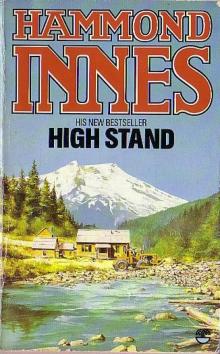 High Stand
High Stand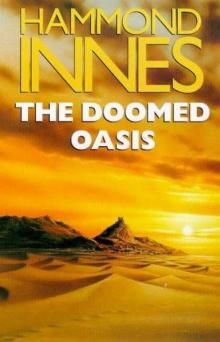 The Doomed Oasis
The Doomed Oasis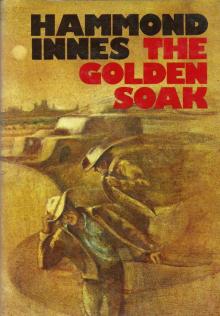 Golden Soak
Golden Soak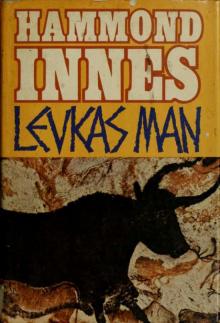 Levkas Man (Mystery)
Levkas Man (Mystery)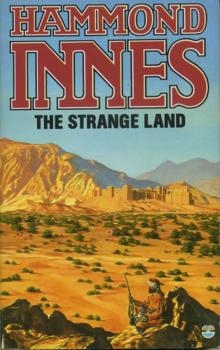 The Strange Land
The Strange Land Dead and Alive
Dead and Alive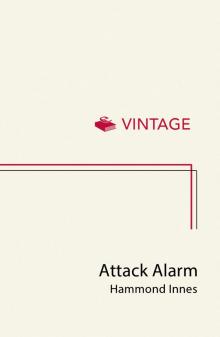 Attack Alarm
Attack Alarm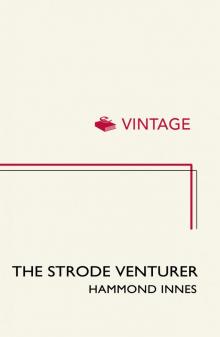 The Strode Venturer
The Strode Venturer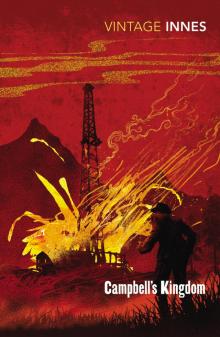 Campbell's Kingdom
Campbell's Kingdom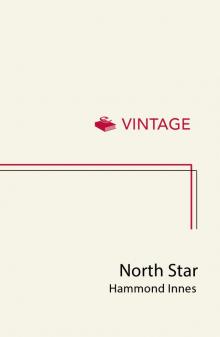 North Star
North Star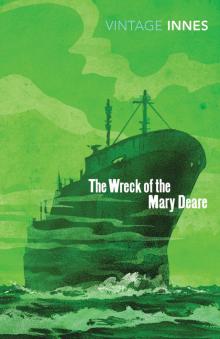 The Wreck of the Mary Deare
The Wreck of the Mary Deare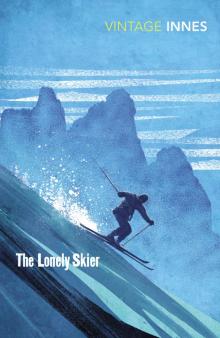 The Lonely Skier
The Lonely Skier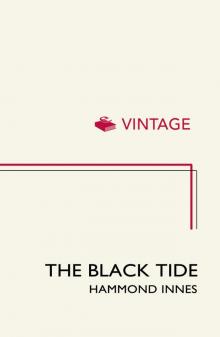 The Black Tide
The Black Tide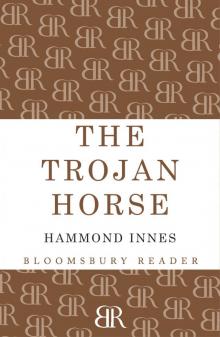 The Trojan Horse
The Trojan Horse Medusa
Medusa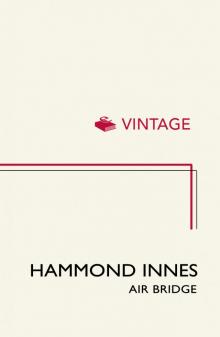 Air Bridge
Air Bridge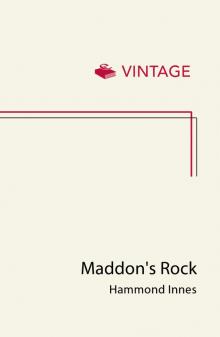 Maddon's Rock
Maddon's Rock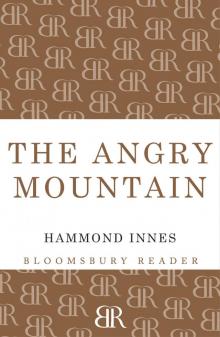 The Angry Mountain
The Angry Mountain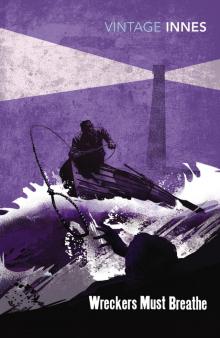 Wreckers Must Breathe
Wreckers Must Breathe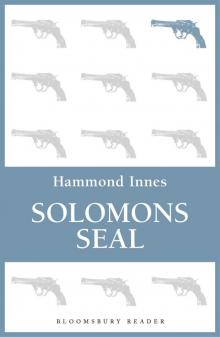 Solomons Seal
Solomons Seal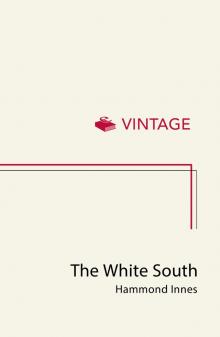 The White South
The White South